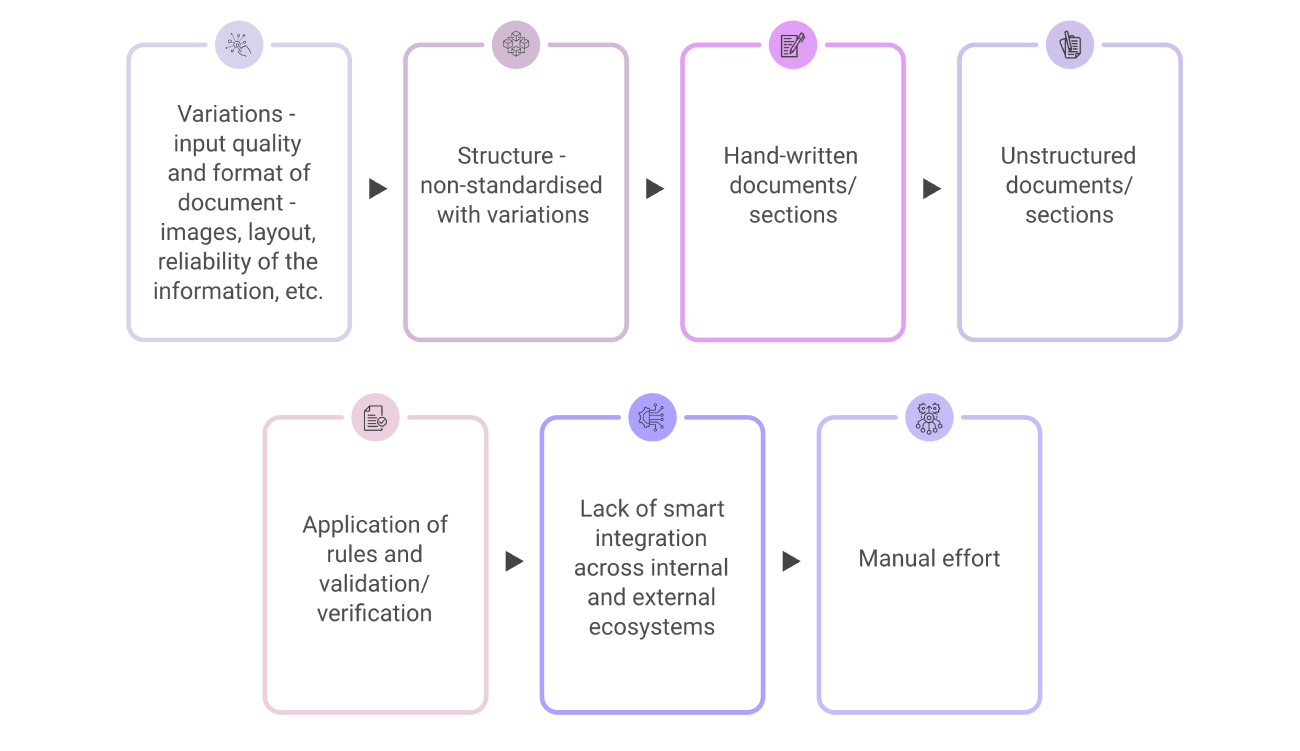Over the last few years, in businesses across industries, there has been a large push towards digitisation, transformation and leveraging of technology as a differentiator. This has become a central focus for stakeholders, especially since the pandemic has impacted businesses. Digitisation is making life easier for consumers, with transactions being made possible anywhere, with the necessary services being available. However, it needs to be tailored from an end-to-end perspective, making it truly digital and automated.
According to industry research more than 80% of data within any organisation is unstructured and most of this data is locked in documents. These documents could be in various forms – such as text, PDF, scanned documents, Emails, excel sheets, images, etc. Rule-based RPA alone cannot process these documents with the desired accuracy and confidence. There have been many attempts to solve this problem in the past, however, the best solutions have been limited to a ‘Need to Process’ basis, which requires the manual extraction and entry of data pertaining to the transaction, while other data elements are left out. This remaining data could actually be of interest for cross-selling or enhancing engagement.
At this point, let us re-establish what document processing is. Simply put, it is the ability to decouple information from its carrier medium and prepare it for integration or exportation to other systems. As mentioned earlier, the need to incorporate this information into automated workflows has grown greatly, and so has the need to process a wide range of documents. Some of the challenges while handling documents are:

Therefore, the need of the hour is ‘Intelligent Document Processing’ (IDP). Keeping in view the new-age technological capabilities in the space of Artificial Intelligence, Natural Language Processing, Machine Learning and Cognitive Technologies, a focus is to be laid on delivering these contextual capabilities while handling such documents and bringing in an intelligent response to the previously mentioned challenges. IDP has emerged as a disruptive technology, especially on account of its superior ability to process documents without any human intervention and brings in much required end–to–end automation, leading to higher efficiency, accuracy and speed.
With IDP, documents are intelligently processed and domain specific data is captured, which further enables intelligent and smart routing of the documents, using AI and other tools. Irrespective of what kind of document is to be processed, IDP serves as a single platform for – identification, classification, quality assessment, extraction and post-extraction processes of validation, verification and application of business rules.
Some of the Advantages of IDP are:
Typical business use cases of IDP are in the space where there are documents to be managed or processed. Typical areas where IDP can be leveraged are -
Hitesh Arora,
EVP, Business Head & Global Product Leader,
Intellect Design Arena